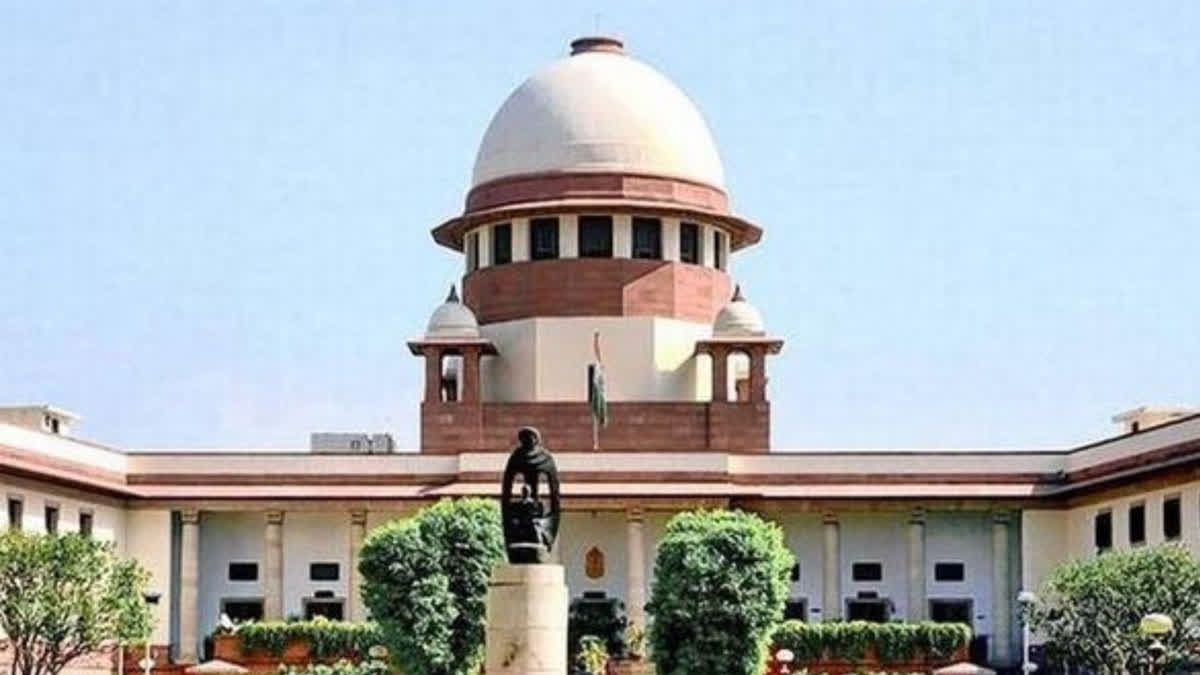New Delhi : The Supreme Court has observed that a person should not undergo harassment of litigation for a number of years, when no criminal offence is made out while quashing FIR, charge sheet for cheating, criminal breach of trust for non-payment on supply of goods. The apex court stressed that police are to investigate the allegations which disclose a criminal act and police do not have the power and authority to recover money or act as a civil court for recovery of money.
A bench comprising justices Sanjiv Khanna and Dipankar Datta said: “This Court, in a number of judgments, has pointed out the clear distinction between a civil wrong in the form of breach of contract, non-payment of money or disregard to and violation of the contractual terms; and a criminal offence under Sections 420 and 406 of the IPC”.
“Repeated judgments of this court, however, are somehow overlooked, and are not being applied and enforced. We will be referring to these judgments”, said the bench, in its order passed on February 6.
The apex court quashed an FIR lodged by Hapur police in Uttar Pradesh and the charge sheet filed against Lalit Chaturvedi and others on a complaint for their alleged refusal to pay back over Rs 1.9 Cr to a timber merchant for supply of wood.
The bench said it will assume that the assertions made in the complaint are correct, but even then, a criminal offence under Section 420 read with Section 415 of the IPC is not established in the absence of deception by making false and misleading representation, dishonest concealment or inducement of the complainant to deliver any property at the time of the contract being entered.
“The ingredients to allege the offence are neither stated nor can be inferred from the averments. A prayer is made to the police for recovery of money from the appellants. The police are to investigate the allegations which discloses a criminal act. Police do not have the power and authority to recover money or act as a civil court for recovery of money”, said the bench.
The apex court said the chargesheet also refers to Section 406 of the IPC, but without pointing out how the ingredients of said section are satisfied, and no details and particulars are mentioned.
The bench said there are decisions which hold that the same act or transaction cannot result in an offence of cheating and criminal breach of trust simultaneously. It said that for the offence of cheating, dishonest intention must exist at the inception of the transaction, whereas, in case of criminal breach of trust there must exist a relationship between the parties whereby one party entrusts another with the property as per law, albeit dishonest intention comes later. “In this case entrustment is missing, in fact it is not even alleged. It is a case of sale of goods. The chargesheet does refer to Section 506 of the IPC relying upon the averments in the complaint. However, no details and particulars are given, when and on which date and place the threats were given”, said the bench.
“Without the said details and particulars, it is apparent to us, that these allegations of threats etc. have been made only with an intent to activate police machinery for recovery of money”, it added.
The bench said it is for the complainant to file a civil suit and initiation of the criminal process for oblique purposes, is bad in law and amounts to abuse of process of law.
“In the absence of the averments made in the complaint petition wherefrom the ingredients of the offence can be found out, the high court should not hesitate to exercise its jurisdiction under Section 482 of the Cr.P.C. Section 482 of the Cr.P.C. saves the inherent power of the high court, as it serves a salutary purpose viz. a person should not undergo harassment of litigation for a number of years, when no criminal offence is made out”, said the apex court.
The bench said it is one thing to say that a case has been made out for trial and criminal proceedings should not be quashed, but another thing to say that a person must undergo a criminal trial despite the fact that no offence has been made out in the complaint.
Read More



